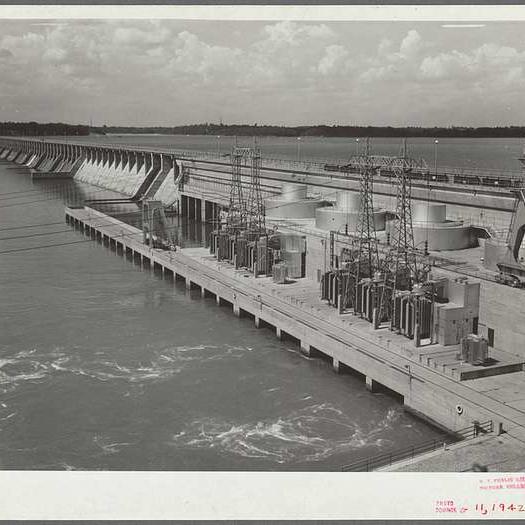
Wheeler Dam, Alabama (Tennessee Valley Authority)
The Other Revolution: Counterrevolution in the American South (Dissertation)
By conceiving of the American South as an empire, my dissertation offers a new perspective on its ideologies of race and counterrevolution, focussing on the Antebellum period to the Great Depression. I show how the goal of creating a white settler nation created a distinctive ideology of Southern counterrevolution. My argument also helps us understand contemporary challenges to racial justice.
Scholars have long denied the South contained counterrevolutionary doctrines comparable to post-French Revolution Europe, in large part because of the American constitution’s liberal values and the alleged absence of feudalism. But if we examine Southern politics as embedded in the context of a white settler society and chattel slavery, I argue that this perspective reveals two things. First, chattel slavery engendered a Southern counterrevolutionary political theory that was statist, paternalist, and often rooted in a critique of capitalism, and this setting created early previews of counterrevolutionary ideologies—such as proto-welfare state institutions in Antebellum proslavery theory, or fascism in the case of groups such as the K.K.K.—that we typically associate with the twentieth century or Europe. One important contribution of my study is to correct a one-sided focus on liberalism in recent scholarship about empire, and examine non-liberal variants. Southerners such as John C. Calhoun and George Fitzhugh did not seek to civilize colonized peoples; they saw permanent subordination and an expanding empire for slavery as the motors of progress.
Second, empire allows us to see the transnational politics of reaction, in which counterrevolutionaries looked to a larger imperial context, especially the British empire. Given the similarities between the South and other empires, counterrevolutionaries referred to these imperial contexts. The visions for an expansionist proslavery empire terminated with abolition, but its legacies did not, and empire continually functioned as a background context. From attempts to replicate slavery within wage-labour during Reconstruction to conservative anticapitalism based on Jeffersonian producerism during the Great Depression, I track counterrevolutionary ideology until the New Deal.

